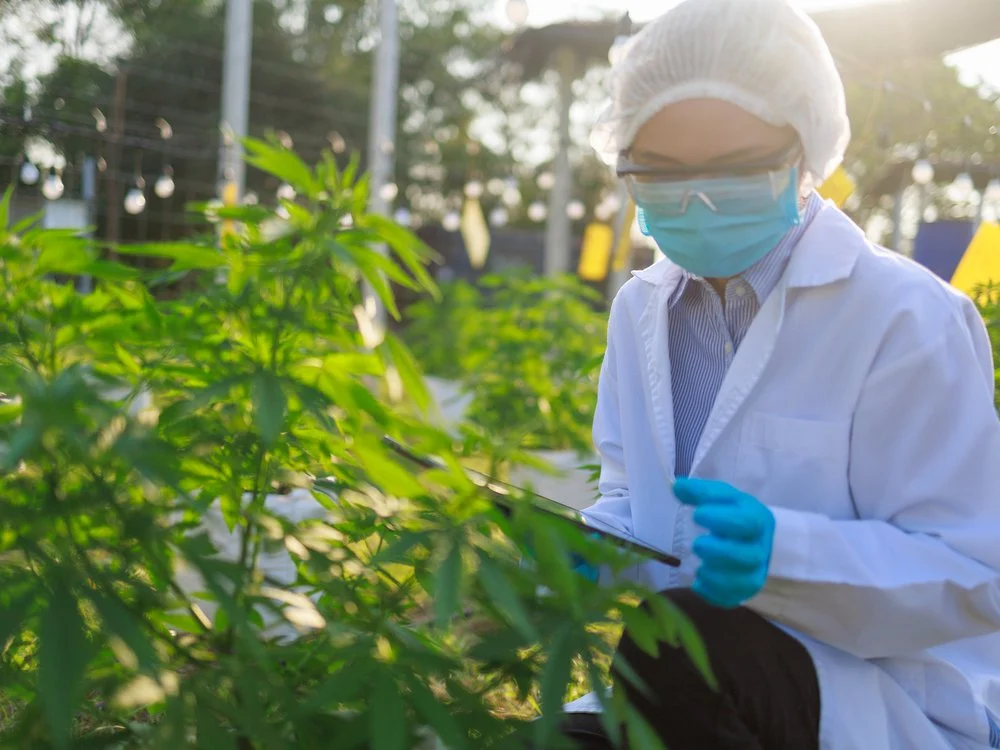President Biden signed a scientific marijuana studies invoice into law closing week, making it less difficult for scientists to get admission to the drug to have a look at its healing uses.
“For decades, the federal authorities has stood withinside the manner of technology and progress—peddling a inaccurate and discriminatory method to hashish,” Cannabis Caucus co-chairs Earl Blumenauer (D-OR), Barbara Lee (D-CA), Dave Joyce (R-OH) and Brian Mast (R-FL) wrote in a statement. “Today marks a huge step in remedying our federal hashish laws.”
Marijuana—described legally as hashish with greater than 0.three percentage of the psychoactive compound tetrahydrocannabinol (THC)—has been legalized for leisure use in 21 states and numerous others have accepted it for scientific use. While docs can not officially prescribe marijuana, they could suggest it to sufferers with situations starting from excessive and continual ache to Alzheimer’s ailment to epilepsy and seizures. The FDA has accepted some THC-derived medicinal drugs to deal with nausea in sufferers present process chemotherapy and to deal with lack of urge for food in human beings with AIDS. Some studies shows the drug can be beneficial for treating despair and PTSD. Health consequences consist of respiratory problems, elevated nausea and vomiting, tension and paranoia. The drug might also have an effect on fetal improvement for the duration of being pregnant and mind improvement in younger users.
The federal authorities considers marijuana an unlawful Schedule I drug (on par with heroin and LSD), making it notoriously hard to studies. In states in which the leisure marijuana marketplace booms, scientific studies nonetheless lags behind.
“The listing of unanswered questions on marijuana is lengthy—and disturbing,” wrote Cindy Kiel, government companion vice chancellor for studies on the University of California, Davis, in 2019 for the Association of American Medical Colleges (AAMC). “How does it have interaction with opioids or different drugs? Which situations would possibly it alleviate, and which of the loads of varietals would possibly paintings exceptional for which situations? How lots marijuana need to sufferers consume, and the way often? Is inhalation, ingestion, or transdermal utility the exceptional dosing strategy?”
Currently, scientists are required to achieve lets in from the Drug Enforcement Administration (DEA) for his or her research, a method which can take a yr or greater, writes Science’s Meredith Wadman. Under the brand new Medical Marijuana and Cannabidiol Research Expansion Act, the Attorney General has 60 days to approve applications, request greater statistics or offer motives for denying them.
Additionally, the law paves the manner for universities and different entities to manufacture, distribute, dispense and own marijuana for studies, and it’s going to permit researchers to amend their studies protocols less difficult. It additionally calls for the DEA to evaluate yearly whether or not researchers have an “good enough and uninterrupted deliver of marijuana,” in line with the law.
For decades, the University of Mississippi turned into the simplest federally accepted cultivator of the drug for scientists, aleven though closing yr, the authorities accepted six greater entities.
“We have one resource, and the best attention with THC [tetrahydrocannabinol] is 12 percentage,” Ryan McLaughlin, a hashish researcher at Washington State University, tells Bridget Balch of the AAMC. “That’s at the low quit speakme approximately the leisure marketplace.”
The common efficiency of the hashish flower is now round 20 percentage THC, as compared to four percentage withinside the 1990s, in line with the AAMC. Some quite focused merchandise incorporate greater than ninety percentage THC.
The marijuana studies act may also permit physicians to speak about the ability harms and advantages of marijuana and its derivatives with sufferers.
Some say the brand new law nonetheless limits how scientists can do studies due to the fact they can not purchase and have a look at the goods to be had to purchasers in dispensaries.
“There’s no replacement for analyzing real-global merchandise that our sufferers and leisure purchasers are using,” Staci Gruber, a neuroscientist at McLean Hospital in Massachusetts, tells Science.
And the law won’t reschedule the drug, which many researchers have lengthy driven for. However, President Biden introduced plans to check its type in October.
“[Rescheduling would] allow lots greater studies,” Rosalie Liccardo Pacula, who research dependancy and hashish coverage on the University of Southern California, tells AAMC. “It means, with federal studies dollars, we [could] observe the fitness consequences of merchandise already getting used and offered in felony markets.”


0